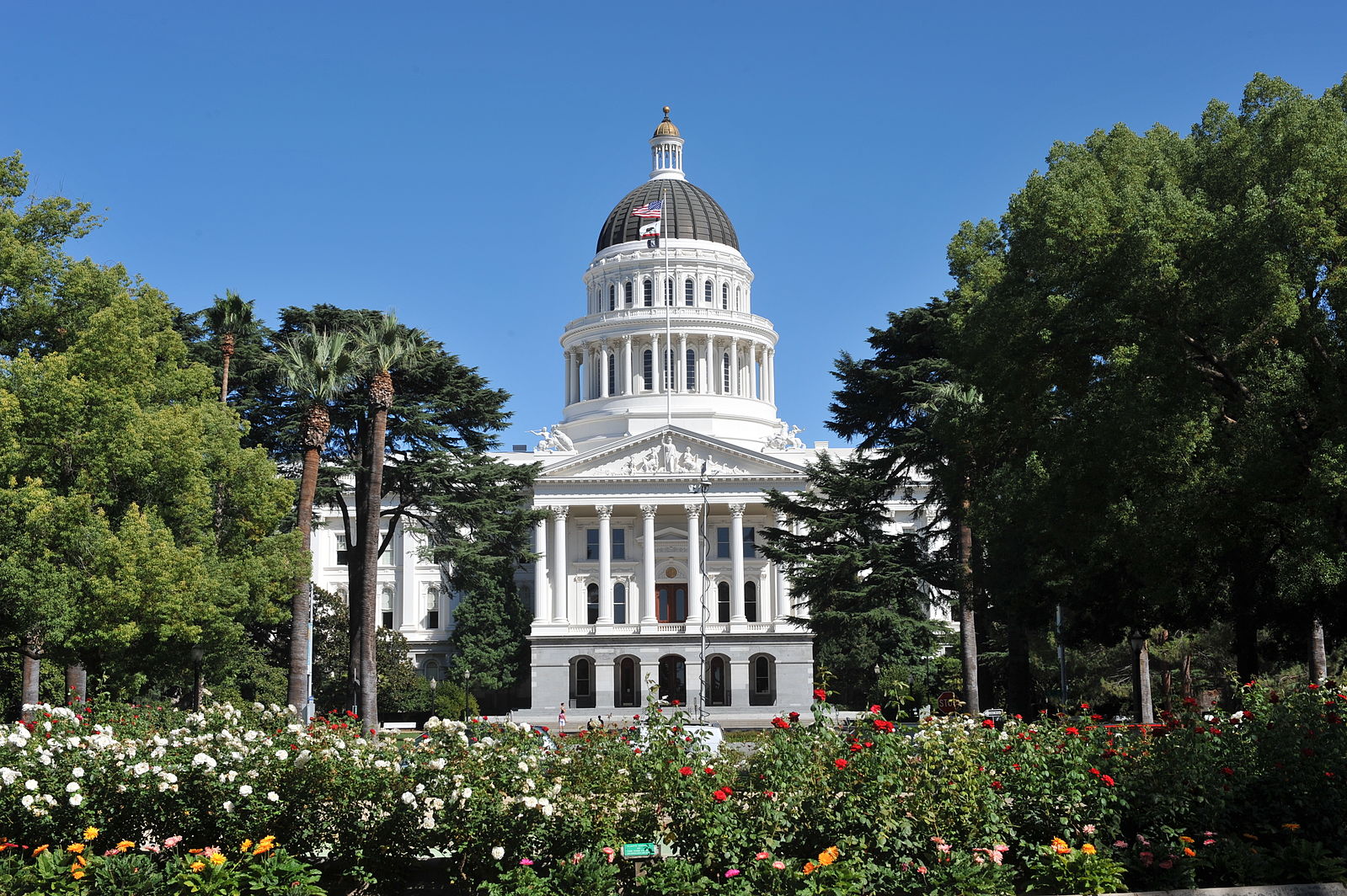California, LA task forces to recommend reparations for Black residents

Pictured is the California State Capitol. (Wikimedia Commons photo by Thomas W. Toolanvia via Upload Wizard)
By Christopher Buchanan
June 11, 2023 8:29 p.m.
This post was updated June 12 at 2:15 a.m.
Task forces representing California and Los Angeles will make recommendations to the California Legislature to compensate and formally apologize to residents who are descendants of slavery. The California task force will make recommendations July 1.
The task force, established by California Assembly Bill 3121 in 2020, was formed to research the prolonged effects of slavery and institutional racism on living Black residents. Studies by the task force – including research by UCLA students and faculty – have found that Black residents were disproportionately affected by certain California government policies.
On May 7, the task force voted to approve bringing several recommendations to the California government to compensate Black residents for devaluation of businesses, discriminatory denial of health care, housing discrimination and mass incarceration. If recommendations are approved, Black residents who have lived in the state for six months since 1850 may be eligible for compensation. The recommendation will be brought to the California Legislature before July 1.
The city of LA also established a Reparations Advisory Commission in 2021 to investigate various harms the LA government has caused Black residents, said Diamond James, lead support staff of the commission. James said the commission will examine government-sanctioned violence, redlining – denying real estate in predominantly white neighborhoods to Black individuals on the basis of race – and environmental harms imposed on Black Angelenos by national and city government. Based on the findings, the commission will create recommendations to institute a reparations pilot program for Black residents, according to the city of LA.
Katrina VanderWoude, one of the commissioners, said there has been a resurgence in conversations concerning reparation efforts over the last three years. She said she believes racial violence in the criminal justice system and intergenerational poverty have influenced this renewed dialogue.
“That lack of generational wealth that has been passed on really turns us into that space of what kind of health care do you receive?” VanderWoude said. “What kind of education are you exposed to? What kind of life are you likely to enjoy based on what zip code you’re born into?”
James said the commission is investigating additional methods to compensate Black residents affected by lingering effects of slavery and government policy. She added that the commission is also considering implementing support services to address issues that disproportionately affect Black residents, such as homelessness and poverty.
The city commission also seeks to further examine other methods of reparations, such as health and education services, when its research has concluded, VanderWoude added.
“We’ve heard looking at housing. We’ve heard looking at education, potential education supports in grants. We’ve heard health care,” VanderWoude said. “Most recently with the COVID-19 pandemic, we really saw who was most disproportionately impacted.”
The commission’s research also seeks to address educational barriers that Black students face because of educational debt and lack of opportunity, said Mark Pampanin, communications director at the LA Civil + Human Rights and Equity Department. VanderWoude and Pampanin added that the commission wants to involve more students in discussions about reparations and their potential benefits.
Elisse Howard, a social welfare graduate student, said she believes reparation efforts will help ease the financial burdens many Black students face.
“For someone like me, who comes from a lower socioeconomic background, single mother family household, this could be a real change,” Howard said.
Some Black students have expressed that it is necessary to expand potential reparation programs to examine service or structural supports in addition to monetary compensation.
Lauren Kirkwood, a first-year political science student, said she would like to see the government address inequities that Black residents experience aside from finances.
“We must establish the fact that there are a lot of inequities within the health care sector and within education,” she added. “I believe that reparations will help, but we also have to make sure that health care is equal.”
Black residents will be required to prove a six-month California residence, according to the Reparation Task Force’s recommendation. A potential eligible candidate would be required to prove their residence in California for six or more months from 1850 to the present.
However, Howard said she worries that methods of classifying a descendant of slavery or a California resident could have negative effects on potential recipients. She added that some Black residents may lack the proper identification of their residential or familial history to be classified as eligible.
Reparations efforts are only a start towards creating a more equitable state for Black residents, Howard said.
“They (LA city government) have pushed them (Black residents) out of here, and this finally gives Black individuals, and especially Black individuals who were pushed out of their homes, a chance to come back and have a fair chance,” Howard said.

